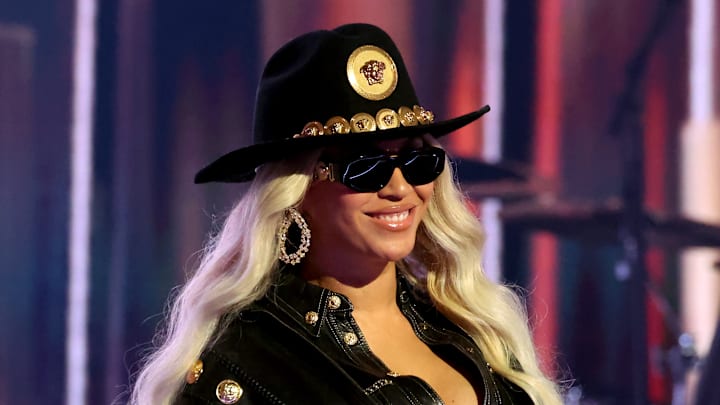As I sit here listening to Cowboy Carter for the umpteenth time, my excitement threatens to boil over. This is typical for me whenever Beyoncé drops new music because when she opens the door for us to experience her art, she shifts the culture. An album release from this icon doesn't just come with discourse and critique, what follows are deep dives from the media, historians, experts in the field, and often academics who lend their voices to the conversation as we all analyze the layers and thought behind her musical choices.
As we wait to hear whether Beyoncé will go on tour with her new album or release an accompanying docufilm like she did with Renaissance, we can anticipate more than our favorite podcasts reacting and reviewing to her latest work or segments on TV and online dissecting the tracks and their impact on the music industry. A new documentary about the artist--her dive into country music via a full album after Lemonade's "Daddy Lessons" and her now infamous (and awing) CMA performance with The Chicks, and what defines the genre--is coming to Max.
Titled Call Me Country: Beyoncé & Nashville's Renaissance, the documentary produced by the CNN FlashDocs unit lands Friday, Apr. 26 on Max. Per the press release, Call Me Country "examines the impact of how high-profile artists like Lil Nas X and Beyoncé are challenging the country music status quo and how Black artists in Nashville have been laying the foundation for this transformation for some time."
This documentary will continue the conversation that Beyoncé lent her voice to, one that we've been having in America for decades. It predates her, it predates many of our parents. When it comes to the monetization of music, the face of a genre, Black musicians even in art forms created, cultivated, and furthered by their innovations are often shut out and unsupported once that genre enters the mainstream. It's a tale as old as the music industry.
For those unaware, country music falls within this category. For an artist of Beyoncé's caliber and fame to acknowledge and choose to step into an arena she doesn't have to but because she wants to, and to make a point, has shaken the table. It's also forced people to examine their biases or, in some cases, revealed their racism and inability accept the fact that Black artists have always been a part of the genre whether behind the scenes or on stage.
Ignorance to the genre's history isn't the issue. We all don't come to the music we adore brimming with knowledge of its roots or an interest in it. That's fine. If it gets your toe tapping and your body moving, and that's enough for you, that's okay. The issue is the gatekeeping and the insistence that country music can only be made by a certain type of person--straight, White people--even though it's a genre that has a diverse, rich history and its present (even with pushback) continues to progress.
Call Me Country: Beyoncé & Nashville's Renaissance strikes at the heart of this reality and includes interviews with country musicians who have helped shape the genre along with bluegrass and folk. Analysis will be provided by culture and country music experts as well. Appearances include:
- Rhiannon Giddens
- John and T.J. Osberne (Brothers Osborne)
- Rissi Palmer
- Aaron Vance
- Denitia
- Touré
- Larisha Paul
- Chris Molanphy
- Kyle Coroneos
- Keith Hill
- Holly G. and Tanner D. (Co-Directors of the Black Opry)
If you're a Beyoncé fan, you love country music, you're a melophile, or all the above, I'd encourage you to make time to tune into Call Me Country: Beyoncé & Nashville's Renaissance. The documentary premieres Friday, Apr. 26.
